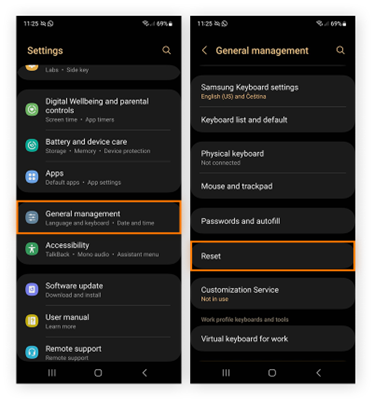Enhancing Child Safety: The Power of Custom Labels for Identification
Have you ever wondered how kids labels can enhance child safety and identification? Ensuring our children’s safety is job one for any parent, guardian or caregiver. Custom labels have emerged as a vital tool in this try, offering a unique blend of security and personalization.
We’ll investigate into the importance of these labels, exploring how they can protect our little ones and provide peace of mind.
The challenge of keeping children safe while maintaining their independence is one we all face. Custom name labels for kids present an innovative solution, allowing for easy identification in crowded places or during emergencies. We’ll uncover the various ways these labels can be used, from clothing and accessories to school supplies, and how they’re revolutionizing child safety.
Armed with our expertise and thorough research, we’ll guide you through the benefits and practical applications of custom labels. You’ll gain valuable insights, tips, and guidance on making the most of these tools for your child’s safety. Get ready to investigate a fresh perspective on child identification that combines efficacy with personal touch, setting the stage for a safer tomorrow for our children.
The Need for Child Identification
In our journey as parents with two young kids, we’ve come to understand the importance of child identification. It’s a simple truth that kids, bless their hearts, have a knack for finding themselves in situations where they’re separated from us, whether it’s in a bustling mall or during a school field trip.
This is why child identification becomes a non-negotiable for us. It acts as a guide, ensuring that our little ones can be easily identified and brought back to us should they wander off. Custom labels, then, become our allies in this try, offering a straightforward solution for our peace of mind and our children’s safety. They’re a modern-day must-have, serving as an immediate reference for contact information and potentially life-saving details such as allergies and medical conditions.
Evolution of Identification Methods for Children
Borrowing from our experiences as parents exploring the sometimes overwhelming sea of child safety, we’ve watched the transformation of identification methods for our little ones evolve from simple to sophisticated. Initially, techniques were as basic as handwritten notes tucked into backpacks.
But, like a caterpillar turning into a butterfly, these methods have morphed. Modern advancements have brought forth a world where digital IDs and QR codes are king. Companies like Colle à Moi and Mabel’s Labels have revolutionized how we keep tabs on our kids.
No longer of permanent marker on the arm; now, durable, waterproof custom labels that adorn our children’s clothing and accessories speak volumes. They not only communicate essential contact information but also significant health alerts, bridging crucial gaps in child safety and identification.
Riding the wave of technology, these labels have become indispensable tools, ensuring that our adventures in crowded places feel a tad less daunting.
Types of Custom Labels for Child Safety
Diving right into it, we’ve got a range of custom labels that serve as a lifeline in keeping tykes tethered to crucial information. Each type has its own forte, making sure no child falls through the cracks of anonymity in bustling environments.
- Wearable ID Bands: These are the dynamos among custom labels. Featuring resilience against water and wear, wearable ID bands, from brands like SafetyTat, rest snugly on wrists, broadcasting vital contact details and medical info without causing a fuss.
- Iron-On Clothing Labels: Talk about a stealthy guardian. Mabel’s Labels crafts these durable tags to blend seamlessly into the fabric of kids’ clothes. They’re laundry-safe, ensuring that a child’s identity sticks around longer than their penchant for mud pies.
- Sticker Labels: For objects that journey with our youngsters—think backpacks, lunch boxes, and water bottles—sticker labels are the champions of cling. Waterproof and resilient, they turn everyday items into beacons of identification, thanks to their adhesive prowess.
- Shoe Labels: Ever thought shoes could talk? Well, in a way, they can. Shoe labels nestle into the inner sole, offering a discreet yet effective method to carry essential contact details. They’re perfect for younger children who might not keep a wristband on.
- Allergy Alert Labels: Specificity is key when it comes to health alerts. These labels, vibrant and impossible to overlook, ensure that caregivers and peers are aware of a child’s allergies, making them indispensable in creating a safe bubble around the little ones.
In weaving through the fabric of our daily hustle, these custom labels emerge as silent sentinels. They bridge the gap between modernity and safety, ensuring our kids are always a detail away from being identified and protected.
Designing Effective Custom Labels
Jumping right from the overarching importance and types of labels, let’s chat about crafting those nifty custom labels for our tykes. The key, friends, is in the mix of durability, clarity, and kid-appeal. Our munchkins’ labels need to withstand sandbox escapades and the deepest puddles. They should shout their message with crystal clarity yet charm those little rebels into wearing them proudly. Here, we break down the essentials.
Material Matters
Choosing the right fabric or material is starting on solid ground. Silicone bands and waterproof stickers laugh in the face of spills and splashes, keeping the text readable. Iron-on labels, snuggling into the fabric of a favorite tee, stay put through washes. Every choice serves a purpose; durability meets daily adventures.
Legibility Leads
Envision a font that talks to adults and kids alike. Clear, bold, and friendly characters ensure no squinting is needed. Whether it’s a phone number on a wristband or an allergy alert on a backpack tag, the goal is legibility. Every guardian, teacher, or playdate host glances and grasps the essentials immediately.
Color and Creativity Capture
Color plays the pied piper, leading kids to choose their labels with excitement. Bright hues and fun graphics make each label a miniature billboard of safety. Personalization goes beyond necessity; it invites our children into a shared journey of protection. They pick, they poke, they’re part of the process.
In wrapping up (not that we’re closing the conversation), effective custom labels stand at the intersection of resilience, readability, and razzle-dazzle. Our partnership in design—between us parents and the craftsmen—crafts safeguards that our kids don’t just wear but wear with a dash of pride.
Benefits of Custom Labels in Daily Life
Exploring the practicality of custom labels, they shine as organizational wizards in our day-to-day routines. These tiny saviors, ranging from waterproof stickers for gear and silicone bands for bottles, ensure our belongings always find their way back to us. They serve as silent guardians, fortifying our children’s safety with a simple yet effective identification method.
Whether it’s a water bottle left at soccer practice or a backpack forgotten on a field trip, custom labels help secure personal items, keeping them out of the lost-and-found bin and safely in our possession.
This organizational strategy not only streamlines our daily lives but also instills a sense of responsibility and independence in our kids, teaching them the value of looking after their possessions. With custom labels, the mundane task of organizing transforms into an effortless system of management.
Technological Advances in Custom Labels
In today’s digital era, the innovation in custom labels for child safety and identification is nothing short of remarkable. We’ve seen a transformative shift towards incorporating technology into these small, but mighty tools. Digital tags, QR codes, and GPS-enabled stickers are leading the pack. These advancements not only ensure a child’s safety but also offer peace of mind to us parents.
Digital tags, ultra-thin and durable, can be sewn into clothing or attached to personal items, storing essential contact information. QR codes, easily scanned with a smartphone, connect to a secure database where detailed identification and medical information can be stored. Labels go beyond parental control monitoring apps for child safety, especially because most younger children do not carry smartphones with them. Phones are also not on a child’s person at all times, such as educational settings, field trips, and when children misplace them. GPS-enabled stickers, perhaps the most groundbreaking, allow real-time tracking of a child’s location.
The leap from simple name tags to these high-tech solutions represents a major step forward in child safety and identification. By embracing these technological advances, we’re not just fitting our kids with labels; we’re equipping them with smart, interactive safety tools that keep us connected, no matter where they roam.
Challenges in Implementing Custom Labels
Exploring the hurdles of integrating these personalized tags into our daily lives, we confront several obstacles. First and foremost, sustaining the integrity of custom labels against wear and tear proves to be a tall order. Children are dynamos of energy, often subjecting their belongings to conditions that test the limits of durability. So, selecting materials that can withstand these rigors becomes paramount.











